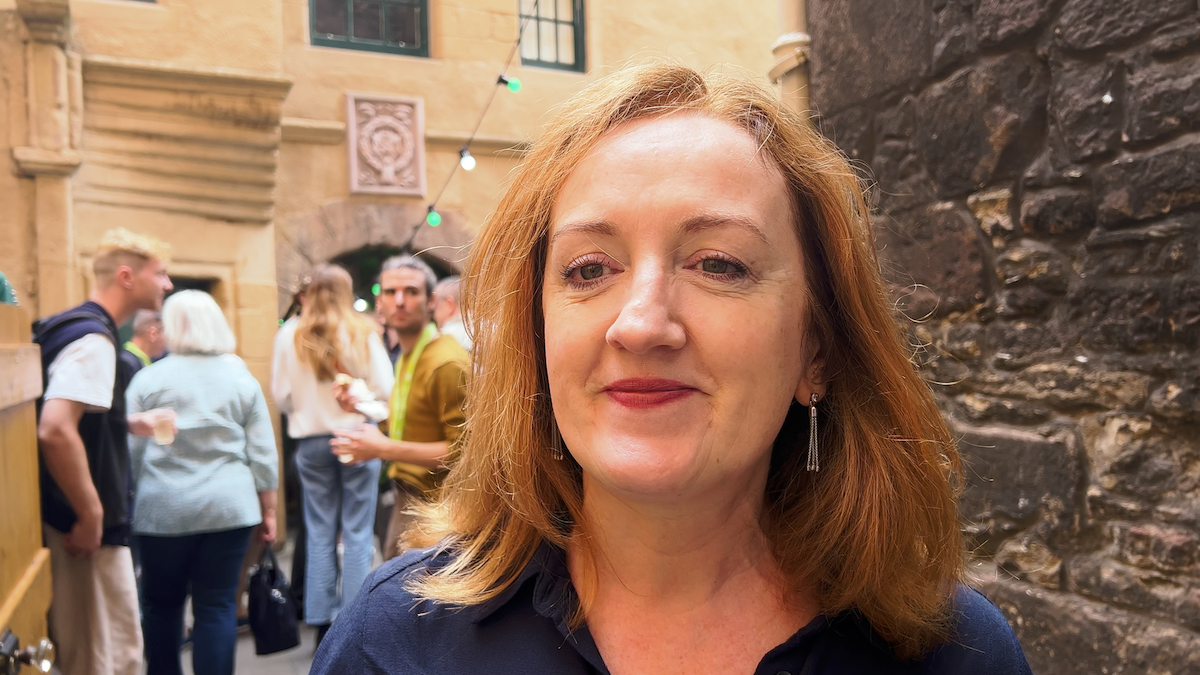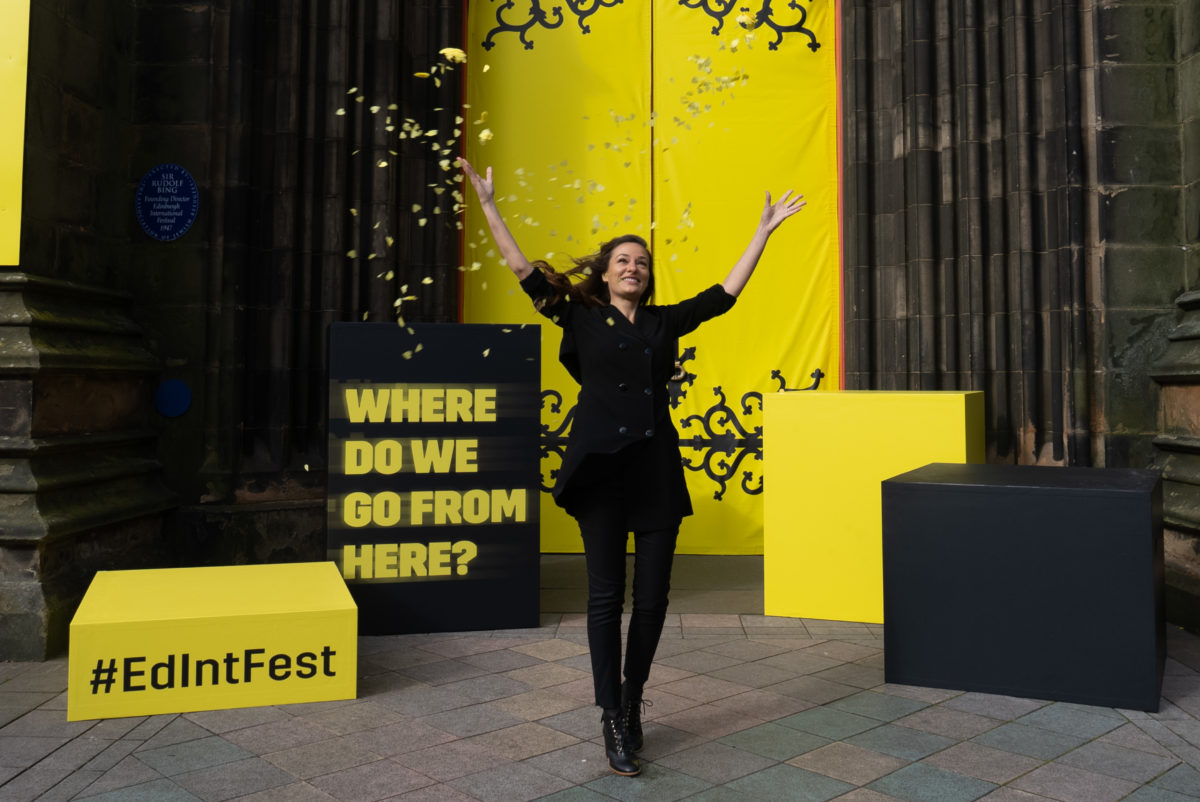Festivals call for more regular government help
Representatives from two of the major Edinburgh festivals, and the Tattoo were invited to give evidence to the Scottish Affairs Committee who are studying the topic of “Promoting Scotland Internationally”.
Members of the committee visited New York during Tartan Week to see for themselves how promotion on the international stage works in practice.
All giving evidence agreed that there could be more collaboration among the arts organisations responsible for our Edinburgh festivals and that more regular help from governments would also make that easier.

Shona McCarthy, CEO of Edinburgh Festival Fringe Society, told the members of the committee that artists and venues are all still suffering financially after the pandemic. While she said that she supported the Scottish Government’s short term lets legislation (which makes planning permission or licences mandatory for accommodation in certain circumstances) she nevertheless pointed out that it will have “unintended consequences – particularly for artists”.
She also said that the “dreaded rising cost of accommodation” in the capital must be looked at strategically, and that soaring bills are the “grim reaper”.
She said: “I think Scotland probably does not realise just what an incredible brand it has in Edinburgh’s Festivals—particularly those that happen over that concentrated period in the summer months. I have just come back from my first experience at Tartan Week in New York and Washington, and I was absolutely blown away by the extent to which the Fringe brand is known. It is a household name and a recognised brand across the US. Indeed, I saw at least eight shows billed in theatres in New York and Washington that had come directly from the Edinburgh Fringe.”
Festivals Edinburgh
Festivals Edinburgh gave evidence to The Scottish Government’s Local Government committee in February calling for them to look again at including residents’ personal primary homes in the planned short term lets legislation. Ahead of her Committee appearance, Julia Amour, Director of Festivals Edinburgh said: “Edinburgh’s Festivals are frustrated at the extent of plans to regulate brief stays in residents’ personal primary homes – compared to commercial secondary lets where we understand the need for regulation – especially when the regulatory plans have no apparent regard to the collection of evidence or the assessment of impact.” And Festivals Edinburgh said that Edinburgh Council has chosen to apply many of the conditions to the temporary exemptions which could lead to a third of the programme being lost next year.
Call for constant funding
At the Scottish Affairs Committee Ms McCarthy continued: “There is an enormous amount that The Scottish Government and the UK Government could do to promote the Festivals overseas. There is much more that we could do in terms of our physical presence at other festivals and events, but our ability to do that is limited by finance and resourcing.”
Ms McCarthy who heads the organisation which received capital funding of £7.6 million from the UK Government earlier this year to assist them in renovating a former school building on Infirmary Street, said that both the Scottish and the UK governments need to help the festivals more.
Deidre Brock MP for Edinburgh North and Leith, and a former Culture Convener on The City of Edinburgh Council, asked Ms McCarthy directly about how she (and the International Festival who received around £1 million of funding) had achieved that. Ms McCarthy said it came from a blueprint published in 2017 which was the festival’s 70th anniversary year “but there was nowhere that told its history or its story”.
She also said: “In a parallel process, we have been asking the levelling-up agenda for support for a building – a community hub -in Edinburgh through the community ownership agenda. At the same time, we have been asking the Departure for Culture Media and Sport (DCMS) for recognition of the Fringe as a major event and for support for artists, for theatre tax relief for our venues and for a list of things. This ask has been on the table for a very long time, and the bit that we were successful with was the capital project, the building of the community hub project.
“I am at pains to point out that that is very much a capital gift: it is not revenue funding and it does not address the wider piece about the survival of the Fringe, the change in its economic model, the support for artists, the support for venues and the infrastructural support to enable the Festival to happen every year. That is still an ask on the table with DCMS.”
Ms Brock pressed further on the matter of the capital funding, asking it the announcement had come out of the blue. Ms McCarthy replied it was a bit of both – expected after all their requests, but also a surprise. She said: “We had been talking at length with the UK Government, particularly on the levelling-up agenda around the capital project and the need for a new community space. We had submitted paperwork and given an outline of what we thought it might cost and so on. But the inner workings of the UK Government are not within my gift or understanding.
“When the announcement was made, it happened at greater speed than we had anticipated. It was very welcome news, but we would have loved to have seen the wider issues of the actual cost of the Fringe taken into account. The ongoing running costs and support that is needed for artists and for the infrastructure of the Fringe was as big an issue to us as looking for our new community hub. I assume it is easier to find capital when you approach the Government than it is to find long-term revenue.”
Festivals and Tattoo represented

Ms McCarthy then explained that there is little investment into the “annual infrastructure” and said: “I would very much make a massive plea for the UK Government to recognise the Edinburgh Festivals as being a landmark moment every year—the equivalent of a Commonwealth or Olympic Games—and to be recognised as an event at that scale, and for there to be some level of continual investment to support an event that is globally recognised and to support the importance of the Edinburgh Festivals.”
Major General Buster Howes, CB,OBE, Chief Executive of the Royal Edinburgh Military Tattoo said that the strategy to knit together the experience for the 3.5 million people who visit Edinburgh every summer is “unclear” to him. Fran Hegyi, OBE, who is the CEO of the Edinburgh International Festival agreed that the festival is better known internationally than domestically and that a UK strategy around festivals is needed. She pointed out that the pandemic had highlighted the “fragility of the whole of the ecosystem”. She asked: “What is the place of these gems within the whole of the UK?”
Christine Jardine MP for Edinburgh West raised the matter of accommodation costs and wondered if it needed to be addressed separately. Shona McCarthy answered: “We need a joined-up conversation about what it means for Edinburgh to host the collective of our Festivals at scale every single August. It needs the same kind of collective thought process that you would put into hosting a Eurovision song contest or a Commonwealth games.”
Douglas Ross also mentioned the smelly topic of last year’s bin strikes saying it was “such a great shame that our capital city looked like that at a time when you were all putting on outstanding events”. (He also tried to raise the matter of The Stand and Joanna Cherry’s appearance there but was told it was really none of the Fringe Society’s business.)
Major General Howes explained that the cost of his proposed recent visit to Tartan Week would have come from Diageo, although it was last minute and he did not end up attending, and Ms McCarthy said that the funding for her own visit came from “pieces of sponsorship” and there was a small amount of investment from one of The Scottish Government overseas hubs. She also said: “I have to say we did get a lot of support once we had made the commitment to come out—we got a lot of engagement from both Scottish and British Government officials overseas. Somebody from The Scottish Government came up to me afterwards and said, “How did the Fringe manage to be everywhere?” We worked at it really hard.” But she also pointed out that some pre-planning and collaboration would mean that organisations would get more out of the week.
Ms Hegyi agreed that collective working as a group of festivals would be “incredibly helpful” and that she would welcome a collaborative conversation among the festivals. And she said that for an investment from various quarters of less than £10 million in the festivals the economic return to Edinburgh alone is in the region of £280 million.
